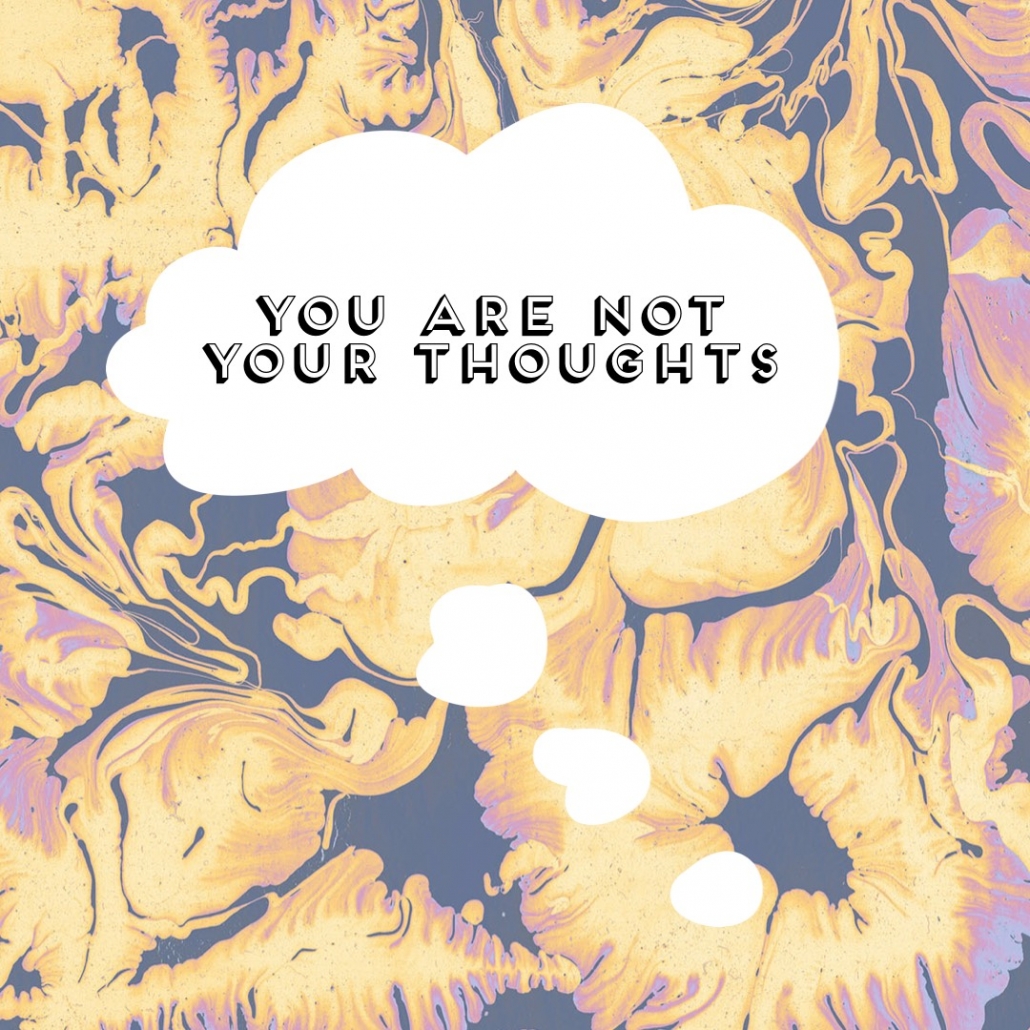Skillful Thought Work – Heather Demetrios
One of the ways we talk about mindfulness practice is to ask whether or not something is “skillful.” I really dig this word. The neutrality of it is what makes it so incredibly useful. When we ask if an action is skillful, we’re not putting a value judgment on it. There is no emotional baggage or social expectation or shaming embedded in this question. It’s simply an honest query: is this action or thought a skillful means to my desired end?
By “skillful,” mindfulness practitioners are asking whether this action or thought brings you closer or further away from true freedom? Freedom, in this sense, is regarding liberation from all the attachments and expectations that lead to our suffering. If the action or thought is skillful, then freedom is closer.
The Skillful Writer
I’ve found this word to be enormously helpful when looking at my writing practice, from process to lifestyle to craft. Writing is so subjective, and this word—skillful—is a great one to use when you want to articulate why something is or isn’t working. On a craft level, you might ask whether or not a line is skillful: does it make good use of the words, punctuation, white space? Does it convey the emotional core of the story in a way that will be clear and resonant to the reader? Does it make the reader want to keep reading?
Skillful is also extraordinarily apt when applied to the artistic process. Being a writer often feels like a mental minefield. When we sit down to write, we’re often battling an entire Greek chorus that stands behind us, intoning all manner of things that are generally not helpful to getting the work done. I often ask my clients and students to name every person in their Greek chorus and come up with some banishing words when they arrive. Exit stage right.
Thought Work
Often, our very thoughts act as a Greek chorus, throwing out criticism, guilt-inducing mental barbs, shame, comparisons to others, obsessive imagery of things going very wrong, and dire predictions. Half the time, it seems like they’re just telling us the gods are not on our side and, furthermore, it’s totally our fault.
I often talk about the stories we tell ourselves—I’m invisible. Nobody will ever love me, I’ll never be published because I’m a woman / autistic / Black / Weird / Christian, I’ll never be a better writer. These stories work on a loop and are strengthened by confirmation bias and by us telling ourselves these stories over and over, gouging mental ruts in our heads that only intentional meditation, mindfulness practice, therapy, or magic can root out. These stories come from thoughts, many of which are not true or—even more important—not helpful.
Thoughts are the building blocks of these unhelpful stories we tell ourselves.
For example, let’s take this story: I’m not good enough to be published.
What are the thoughts that build that story? My craft sucks, nobody who reads my work has good stuff to say about it, I don’t have time to write, So and So is better than me, this story idea isn’t marketable…
I’m going to ask you a question, and I really want you to stop reading this post for a moment and think about the answer: Are these thoughts helpful? Will they get our Thinker closer to publication?
Really think on this. We have time.
If your answer is No, we’re getting somewhere. But perhaps your answer is Yes. You, like me, come from the School of Hard Knocks. Whiplash is one of your favorite movies. You have the discipline of a Soviet gymnastics coach when it comes to writing. Your answer is Yes, these thoughts are helpful because they act as a motivating force to work harder.
But do they really?
Because all I see is a pity party where everyone invited gets to wear a sad, droopy hat. I also see an engraved invitation to a bed of hot coals you have the privilege of walking over, to punish yourself.
How, in actuality, are these thoughts—which, remember, build the story of I’m not good enough to be published— going to move this Thinker into a space where they are free to create from the heart, write a good story, and feel confident enough to put that story out on sub?
In fact, let’s do a little exercise: Think one of the thoughts above to yourself. Perhaps: My craft sucks. Do you feel tight and stressed inside, or open and jazzed to work when you think this thought? Now, you could revise this thought in order to induce those feelings, such as, I’m going to really focus on my craft this year and be the best writer I can be. Cool. But I’m not talking about that thought. I’m talking about the My craft sucks thought. And that, I think we can agree, doesn’t make you feel jazzed at all.
In order to feel expansive, in flow, and free to create the work of our heart, we must dissolve the thoughts that are not helpful to us.
Ridiculous!: How To Dissolve A Thought
Remember that fab scene in Harry Potter and The Prisoner of Azkaban when they learn to banish bogarts?
As our dear Professor Lupin taught us, we can pivot our thoughts so that they no longer have control over us. We might not have wands and spells, but we can banish our own bogarts with very little trouble, as long we we’re intentional about it. But in order to cast a spell effectively, you have to mean it.
Dissolving a thought does not mean lying to yourself, or pushing a thought deeper into your subconscious (out of sight is not out of mind), or compartmentalizing: This wouldn’t necessarily be skillful, because the thoughts are still there, working like an app in the background. Still taking up storage in our headspace. In dissolving them, we take away these thoughts’ power: we make them irrelevant because they don’t exist anymore. We do this by seeing them for what they are: thoughts. Just thoughts. Not destiny. Not always truth.
How many times have you had a thought that just wasn’t true at all? For example: I’ll never get a starred review, and then you get one? So all that time you had that downer thought was a pointless exercise in self hate, right? And even if you didn’t get the star, how would that thought be helpful, anyway? Would thinking that thought manifest a star? Or make you feel better about not getting one?
In fact, we could say that thought was muddling you up so that you couldn’t have the true mental clarity you needed to align yourself with what you want, to project that confidence in your dreams out into the world, and to be positioned to sit down and just do the work.
So how do you dissolve useless thoughts that drag you down? How do you laugh in the face of your very own bogarts?
One way to judge whether a thought needs to be dissolved is to simply ask yourself: is it helpful?
Not if it’s true. It might be true. I suppose it’s technically possible that you are, in fact, the very worst writer in the world. But you might not be. Even if you are the Worst Writer In The World (I tip my cap to you for that feat), is it actually helpful thinking this? Will it get you where you want to go, into the fullness of your artistic self?
No.
Helpful Thoughts vs. Unhelpful Thoughts
Some thoughts, of course, are helpful. I’m not talking about all that self-help nonsense where you lie to yourself in order to induce positive thoughts. Affirmations can quickly tip into dangerous territory. Such as: I’m going to get on the NYT Bestseller list. You might not. And that thought might be keeping you from focusing on what really matters—the work—and so you end up writing work that no one likes because your focus is on the list, not the work. And so you actually manifested the opposite of what you wanted.
Don’t be one more person who lies to you. Trust me, advertisers are doing enough of that for you. Thinking that thought might give you a mental boost now and then, but what happens if you don’t get on the list? Or, let me blow your mind: What happens if you get on it and nothing changes at all?
An example of a helpful thought might be: It’d be cool to be on the NYT List, but that desire really just means that I want more visibility as a writer. What are some actionable things I can do to create more visibility for me and my work, things that are in my control?
Martha Beck, aka Oprah’s life coach, has this wisdom to drop about thoughts:
“While thoughts and emotions are wonderful parts of authentic life, they don’t free us from pain; used incorrectly, they intensify it. The way to find your own North Star is not to think or feel your way forward but to dissolve the thoughts and feelings that make you miserable. You don’t have to learn your destiny—you already know it; you just have to unlearn the thoughts that blind you to what you know.” — Martha Beck, Steering By Starlight
The way to dissolve a thought is to recognize the thought, note that it’s not helpful, and banish it.
You banish it by telling the thought every time it comes up that it’s not helpful. It’s RIDICULOUS! By seeing the true nature of the thought—that it is only a thought, and not a helpful one at that—you’ve taken away its power. It’s like a fantasy novel: you know it’s name and now you own it.
Skillfull Thought Workout
- Write A List Of The Thoughts That Are Plaguing You Right Now
- Now, cross out each thought that isn’t helpful to you. It might be true! But is it helpful to getting you where you want to go? Is thinking this thought skillful or not?”
- For the next week, try to be mindful of these thoughts as they come up. When they do, tell them or yourself that they are not helpful. Don’t linger on the thought. Let it float away like a leaf in a stream.
- If you really want to go next level, take that list of unhelpful thoughts and have a look at what’s underneath, just like I did in the example above about the NYT List. See if some of those unhelpful thoughts can be revised into helpful ones that draw you closer to where you’d like to be.
For a further deep dive into skillful thought revision, check out Martha Beck’s Steering By Starlight and the Unf*ck Your Brain Podcast with Kara Loewentheil.









